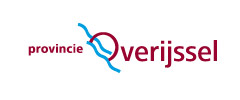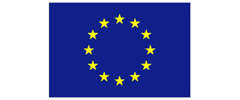Access to Drinking Water - Problems and Solutions in the Ukraine
Presentation by Svetlana Slesarenok, Director of MAMA-86 Odessa, at the Plenary of the European Social Forum in Ivry, Paris, on 14 November 2003.
14.11.2003 |Sascha Gabizon

Svetlana Slesarenok, Director MAMA-86 Odessa
As founding director of MAMA-86 Odessa, I am trying to help our poorest citizens. In a survey which we did, we found out that most families in Odessa are already paying 8% of their income for water! The largest burden falls on the poorest families; families with a large number of children. We found out that some of these poorest families pay even 33% of their income for water services. We have set up a citizen's water centre. We provide legal help for families. Many families come to us saying that their water bills are too high. Our volunteer lawyers help them to get the money which they paid too much, back from the water company.
Just now, these last weeks, I have become involved in a huge scandal. I have accused the water works in Odessa of over-charging our citizens. My organisation started installing water meters as a test-project in 2002. In two buildings we installed water meters in every individual flat. This is not usual in Ukraine. Normally, only the building has a water meter, not each individual family. We have been measuring the exact water consumption in the individual apartments and compared our figures with the figures of the water-companies water meter. We found a 30% difference! We now believe that the water company has maybe on purpose manipulated their water meter to show a higher rate, so that they can charge more money! The city company which is supposed to control and check the water company is in the same building as the water company. The director of this inspection company has previously worked in the water company. We think the inspection company is corrupt and not doing its job. We now want to have citizens to control this inspection company.
We as MAMA-86 are trying to help create public control and citizen's participation in Odessa. That is why we have lobbied very hard to change the rules for installations of individual water meters. It used to be expensive and complicated. We wrote new rules which were adopted by the city authorities. As a result, in one year, 74.000 families installed their own water meter. This way they can check how much water they really use and control if they are not paying TOO much to the water company.
So, as you can see we have lots of problems with our public water company. The situation with these water companies was much better in the Soviet time. Ukraine like the other NIS countries, assured a very high level of access to drinking water for its citizens. In Ukraine 70% of the population was connected to a centralized water system. The state would pay for investments and repairs, which were done more or less well. It was not perfect, but we had a functioning water system for an very affordable price!
Now, in the last 10 years of moving to a liberalized market economy, the state has no longer given money to the water companies for investments and maintenance. Our drinking water systems and pipes are in a terrible state, the water supply is more and more often disrupted.
In Odessa losses by leakage amount to 45-60%! What a waste of money and water!
Now, it is very clear that the water company needs money for investments. The population is so poor that they can't pay for this. Our water company therefore asked the European Bank for Reconstruction and Development (EBRD) - for a loan of 64 million dollars. The EBRD refused.
Instead, the EBRD proposed that they give 200 million dollars to our water company, but under the condition, that they would give a concession to Suez-Lyonnaise des Eaux. For two years the negotiations between Suez and our mayor and vice-mayor took place behind closed doors. Our mayor was invited to Paris. And nobody, not even the water company, was allowed to follow these negotiations. We, MAMA-86, asked and asked again and again, for information. We wanted to know under which conditions the concession would be given. We wanted a transparent process. We wanted an open tender. We wanted public participation. Finally, we organised a public meeting ourselves, were we informed the citizens and the press about the impossibility to get any information on the negotiations between Suez and our mayor. Finally, among others due to our public pressure, the negotiations were broken off. We later heard that the water price Suez had wanted to put into the contract would have been 2.20 dollar per cubic meters. Now, we pay 15 cent per cubic meter! 15 cent per cubic meter is affordable for the families which have installed a water meter in their flat.
I would have liked to give you another example of 'wild' privatisation. The story of an entire village who has come to ask me for help. The river along which they live and which they use daily, has suddenly been 'privatised' and a barbed-wire fence put along the river and dams built in the river by the new rich people. We have been able to stop this process. The fence has been taken away again. Together with the local community we created a platform of resistance. Now we have four court-cases ongoing. The citizens have forced the demission of their elected mayor in a court case. This is possible according to the Ukrainian law; before the end of the term of an elected mayor the citizens can force him to step down. This is very difficult to achieve, but it is possible. And we managed! So you see how we are using our new democratic system to assure access to water for our citizens.
So, to conclude, we have lots of problems with our own water companies and new rich people. BUT, we can do something about them. We are slowly educating them, and changing them through public pressure! We can do so with our own companies. We are not able to do so with multinational companies! They have budgets which are larger than the budget of our country. That is why we prefer to slowly improve our own inefficient companies. At least we can have citizen's control and participation and assure access to water at affordable prices for all.
Summary:
- The right of access to water in Ukraine is in danger.
- We have a crisis in our water supply sector and we need large investments.
- The high level of poverty of the population in Ukraine makes it impossible to pay similar water prices as in western Europe.
- The arrival of multinationals will contribute to an increase of poverty of a significant part of the population.
Recommendations:
- We need less costly technologies.
- We cannot afford to pay high salaries for managers from multinational water companies.
- We have to develop and work together with local companies and local technologies.
- We have only had one example of interest by multinationals in our water sector, we are afraid that many more multinationals will follow, and come to the Ukraine due to the EU's water liberalization policies. We therefore need to create a global citizen's platform to resist the multinationals.
- We ask help from our international partners like Women in Europe for a Common Future, but also all of you here today, to help us increase citizen's monitoring and participation in our local water companies. We need legal advice, we need examples of good systems of control by citizens.
Thank you very much.
Svetalana Slesarenok
PS: The media helps us a lot in this. For example, last year, I was elected 'woman of the year' by the readers of Odessa's largest newspaper.

































